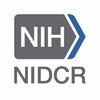
The Efficacy of Omega-3 in Treatment of Atrophic/Erosive Lichen Planus
Oral Lichen PlanusThis study was initiated to evaluate the potential of dietary supplementation of omega-3 for providing an inexpensive, safe and effective therapeutic agent for managing atrophic/erosive lichen planus.

Study of Metronidazole and Doxycycline to Treat Oral Lichen Planus and to Compare Their Efficacy...
Oral Lichen PlanusOral lichen planus (OLP) is a chronic inflammatory disorder which causes local irritation,discomfort and subsequent poor dentition and discomfort in eating . Various treatments have been suggested for OLP but their results are unsatisfactory .Despite the fact that steroids have been the main therapeutic choice for many years,some researches have been done regarding the efficacy of other medication such as metronidazole and doxycycline.The purpose of this study is to determine whether metronidazole and doxycycline are effective in the treatment of oral lichen planus and to compare their efficacy with each other.

Dexamethasone Solution for the Treatment of Oral Lichen Planus
Lichen PlanusThe objective of this single center, 4-week, open label randomized, phase II study is to evaluate and characterize the tolerability and clinical effectiveness of dexamethasone 0.5mg/5ml solution in a mucoadhesive vehicle (Mucolox™) for the treatment of oral lichen planus.

Evaluation of Diode Laser and Topical Steroid Therapy in the Treatment of Erosive Oral Lichen Planus...
Erosive Oral Lichen Planusthis study evaluates the effect of diode laser in treatment of oral lichen planus.

A Clinical Trial to Study the Effects of Two Drugs, Lycopene and Prednisolone in Patients With Oral...
Oral Lichen PlanusOral lichen planus (OLP) is a common sub-acute, chronic inflammatory mucocutaneous disease.This study was evaluated the comparative efficacy of lycopene and prednisolone for the treatment of oral lichen planus. Half of participants (total number of participants was twenty eight) were received lycopene and the other half were received prednisolone.

Chamaemelum Nobile 2% Versus Placebo Topic Gel to Treat Oral Lichen Planus
Oral Lichen PlanusOral lichen planus (OLP) is a chronic inflammatory mucocutaneous disease characterized by outbreaks or flares. It affects 0.2-1.9% of the population. Although the etiology is unknown, the pathogenesis of OLP is known to involve an immune disorder, with epithelial damage caused by cytotoxic CD8 + lymphocytes. Clinically, the disease is characterized by different types of lesions - papular, reticular and in the form of plaques - that can alternate with erosive and/or ulcerative areas. A variety of treatments have been proposed for OLP: topical or systemic corticosteroids, cyclosporine, retinoids, azathioprine, tacrolimus, pimecrolimus, photochemotherapy and surgery. Patients with symptomatic OLP often require intensive therapy to reduce the signs and symptoms. The disease can produce considerable morbidity and alter patient quality of life, particularly in the presence of ulcerative lesions. There is no fully resolutive and effective treatment - the management strategy focusing on the use of drugs that counter tissue inflammation and the underlying immunological mechanisms. The main inconvenience of these treatments is represented by the side effects they usually produce.

Dexamethasone to Treat Oral Lichen Planus
Oral Lichen PlanusThis study will evaluate the effectiveness of dexamethasone 0.01% solution in treating pain associated with oral lichen planus, a chronic disease that causes painful ulcers inside the mouth. The cause of lichen planus not known, but it may be related to an allergic or immune reaction. This study will examine what causes the disease, the pain associated with it, its impact on patients' lives and the use of dexamethasone to treat it. Patients 12 or older with severe oral lichen planus may be eligible for this study. Candidates are screened with blood tests and a biopsy to confirm the diagnosis and provide tissues for research purposes. For the biopsy, two small circles of tissue, each about 4 mm (1/5 inch) across, are surgically removed. Participants are randomly assigned to rinse their mouth with either a dexamethasone solution or placebo (a rinse with no active ingredient) four times a day for 4 weeks. During this period they may not use any oral or topical pain or anti-inflammatory medications except diphenhydramine 12.5 mg/5 ml (a topical numbing medicine) and Tylenol, both which are provided by the study. Patients come to the NIH Clinical Center for three 1-hour visits (once every two weeks) and once more 4 weeks after the study medications are stopped. At the first three visits patients submit a pain diary in which they have recorded information on pain levels, and they are checked for any medication side effects. On the third visit (the last day they take the study drug) they are also tested for adrenal suppression that may have resulted from taking the steroid rinse. For this test they are given an injection of a drug called synacthen and after 1 hour, a blood sample is drawn. Patients return for a final visit 1 month later to determine if their disease returns or improves after the medication is stopped.

Salivary and Serum Leptin Levels in Oral Lichen Planus Patients: A Case-control Study.
Oral Lichen PlanusLeptin LevelsThis study aims to evaluate the levels of leptin in both saliva and serum samples of patients diagnosed with oral lichen.

Intra-oral Treatment of OLP With Rivelin®-CLO Patches
Oral Lichen PlanusParticipants with symptomatic Oral Lichen Planus lesions will be treated with Rivelin® patches containing either 0, 1, 5, or 20 μg clobetasol per patch. Each participant will apply up to 6 patches twice daily for 4 weeks.

Glucosamine as a Novel Adjunctive Therapy in Oral Lichen Planus
Oral Lichen PlanusGlucosamine (GlcN) is an N-deacetyl amino sugar derived from the complete hydrolysis of chitosan with recently reported immunoregulatory capacity and anti-inflammatory effect and was administrated orally in osteoarthritis and atopic dermatitis therapy. Given the Oral lichen planus (OLP) T-cell-mediated pathogenesis; this drug seems to be a promising therapeutic option. The investigators compared clinical effectiveness of Glucosamine combined with two topical corticosteroid regimens to that of topical corticosteroid alone in symptomatic OLP and investigated therapeutic mechanism by examining treatment effect on expression of inhibitor kappa kinase alpha (IKKα) and interleukin-8 (IL-8) in OLP lesions.
